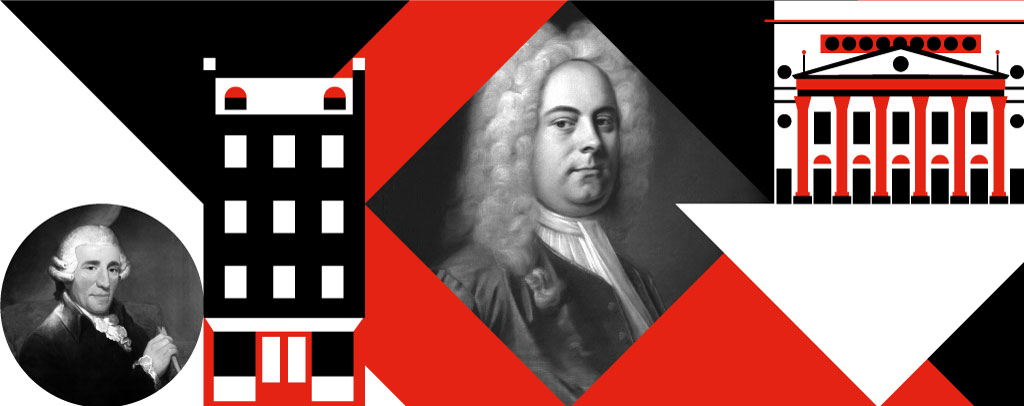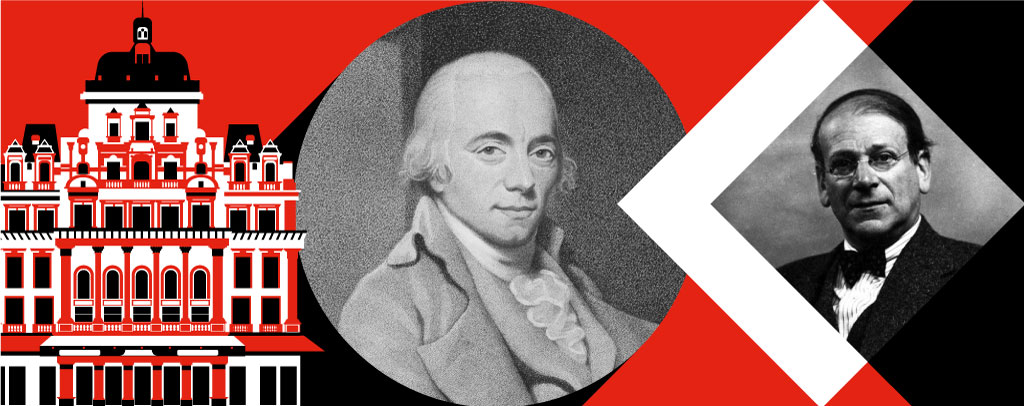London and the invention of concert life
Feature
What made London such fertile ground for musicians from all over the world? And what key roles did those immigrants play? Leanne Langley traces the rise of a world music capital.

If you’ve ever enjoyed a Christmas Messiah or been moved by Tippett’s A Child of our Time; attended professional concerts regularly, absorbing the delights of orchestral music through sociable but attentive listening; or learned to play the piano in your own home, graduating from simple exercises to the pleasures of a whole piece: if you’ve done any of these things, you’ve benefited from a concept developed in London by an outsider, an incomer, a musical immigrant to these shores – none other than Handel, Haydn and Muzio Clementi.
Really? Surely those are common practices pursued by musical people everywhere. Indeed they are, now. But as ideas that engaged ordinary listeners, stimulated composers and pushed music itself towards fresh means of expression, such developments were novel 200 years ago. Introduced by foreign residents as ways of both reflecting and stretching British cultural norms – appealing to the public, galvanising trade at the same time – they took deep root in London.
‘London musicians had to be savvy, inventive and entrepreneurial to survive. Competition was incessant.’
The ground was certainly fertile here, nourished by a peculiar combination of language, political philosophy, industrial advance and free-market economy, open to experiment. Whereas continental musicians tended to rely on court, church or civic appointments, and later, national subsidies in exchange for control of their output and activity, Great Britain had no such institutionalised systems before 1945. It operated few artistic restrictions and gave correspondingly little support to music or musical people (to the regret of native composers, it must be said). Rules pertained in theatres with royal patents and in court-related music. Yet remarkably, all other avenues remained wide open: anyone, regardless of origin or rank, could hire a room and put on a concert, sell songs, build instruments, write, publish, teach or start a music business – bearing their own financial risk, of course. In fact London musicians had to be savvy, inventive and entrepreneurial to survive. Competition was incessant.
The notion that London’s streets were paved with gold, however, as a few foreigners seemed to believe, was not actually true – although a well-conceived music venture could and did sometimes prove lucrative. News of that possibility travelled fast, by letter and print. Handel, Haydn and Clementi were only three of the hundreds who came from Europe, and further afield in the 19th and 20th centuries, to try their luck. Benefitting from contacts built over time, their three particular cases remain stunning, historically pivotal, and show how London’s migrant musicians drove art forward.

‘Handel, Haydn and Clementi were only three of the hundreds who came from Europe to try their luck’
G.F. Handel was an Italian-trained German who ended up in London almost accidentally; he was happy to stay. From 1730, with his Italian operas losing appeal, he cunningly switched from setting classical stories to dramatising sacred ones, beefing up the chorus to represent the Hebrew people (aka the English), singing recognisable words. Voilà, the new genre of English oratorio for middle-class listeners who knew their Bible. Esther was his first, Messiah the sixth. (Tippett’s oratorio, like Walton’s Belshazzar’s Feast before it, reinvigorated the genre with blazing impact in the 20th century.)
Haydn’s impresario J.P. Salomon, himself a London dweller from Bonn, personally brought the famous Austrian symphonist to Hanover Square for two extended periods in the 1790s, creating a veritable rage for music among the beau monde besides generating twelve new ‘London’ symphonies of distinction. Haydn’s viscerally exciting music, without text or story but still enacting audible drama, turned orchestral concert-going into a must-have London experience, with obvious future potential.
In 1799 the pianist Muzio Clementi, Roman by birth, Londoner by choice, set up a highly integrated international business. From premises on Cheapside and Tottenham Court Road he built and marketed pianos across Europe, published and sold music of all kinds, composed works expressly to demonstrate the piano’s capabilities, and designed piano-teaching material for a range of skill levels. Contributing to London’s repute as a hub of the global piano industry, set in motion by the Swiss émigré Burkat Shudi and his Scottish successor in London, John Broadwood, Clementi stood at the heart of a whole school of London pianoforte playing. Recognised abroad, it, in turn, drew other top practitioners, British and foreign, to the capital’s platforms. Audiences responded. Pianos flew off the shelves.
Fast-forward through spectacular growth in population, sprawl and infrastructure serving the world’s largest imperial capital. A quick glance at London transport links, the city’s entertainment sector, and explosion in built spaces for music – concert halls, theatres, churches, music halls, instrument showrooms, academies, music publishers, libraries, cafés, cinemas, record companies, broadcasting studios – clearly shows how opportunity mushroomed and the techniques of communicating sound multiplied. Already before 1914, London supported four symphony orchestras, not to mention a plethora of chamber and recital series across the metropolis; foreign-born players were essential, truly key workers. Meanwhile, a full list of the glittering stars who passed through or enjoyed regular stints is too long to recount. What’s important is that many became taste leaders, shaping both contemporary music styles and British perceptions of music’s power, from Farinelli and Jenny Lind to Chaliapin and Joan Sutherland; Mendelssohn and Berlioz (whose consummate conducting of Beethoven’s Ninth Symphony in 1852 finally established that work in British ears) to Clara Schumann, Joseph Joachim and Wilma Norman-Neruda (Lady Hallé, every girl’s model for taking up the violin); Hans Richter, Artur Nikisch and Eugène Ysaÿe to Solti, Rostropovich and Boulez. The invigorating presence of such artists echoed a similar taste for advanced European music in earlier court life, whether the Italian madrigalists favoured by the young Henry Stuart, Prince of Wales, in the early 17th century, or the French opera in vogue at the time of the Restoration: Charles II appointed the Catalan-born, French-trained Louis Grabu his Master of the King’s Musick in 1666.
‘Much cutting-edge contemporary music still relies on progressive intellectual ideas propounded by émigrés fleeing the Nazis’
Closer to our own time, through the vicissitudes of world war, economic decline, imperial disintegration and the Cold War, Britain’s position became far less confident, more complex and contingent. Yet London itself still offered hope, refuge and community to all kinds of musical migrants, moving in imperial, ethnic or political diasporas. Not only has the city’s spectrum of live music been immeasurably enriched by Afro-Caribbean and American jazz infusions, besides shimmering Middle Eastern and Asian musics (to name only four fertilizing examples), but much of its cutting-edge contemporary music still relies on progressive intellectual ideas propounded by émigrés fleeing the Nazis: the writer-critics Erwin Stein and Hans Keller, the publishers Alfred Kalmus (founder of Universal Edition London) and Ernst Roth, the composer-teachers Egon Wellesz and Mátyás Seiber, and the conductor Walter Goehr.
We should cherish this long, distinguished record of welcome and fair play, and the stimulating musical breadth it has brought. London audiences, curious and demanding, are themselves richly mixed, more open to the benefits of free cultural interchange than the present political climate would seem to indicate. Let’s continue to hope that, despite unfortunate self-imposed restrictions we now face in 2021, music itself can change people, bring us together and build collective civilities that nationalist agendas cannot.
About the author:
Leanne Langley is a social historian of music in Britain. She has published studies of English music dictionaries, periodicals and criticism, concert halls in Regent Street, the Proms, music in the work of John Singer Sargent, and the British reception of Berlioz and Schubert. Formerly a lecturer for the University of Notre Dame, senior consulting editor at the New Grove Dictionary of Opera, and vice president of the Royal Musical Association, she is now Hon. Librarian of the Royal Philharmonic Society.